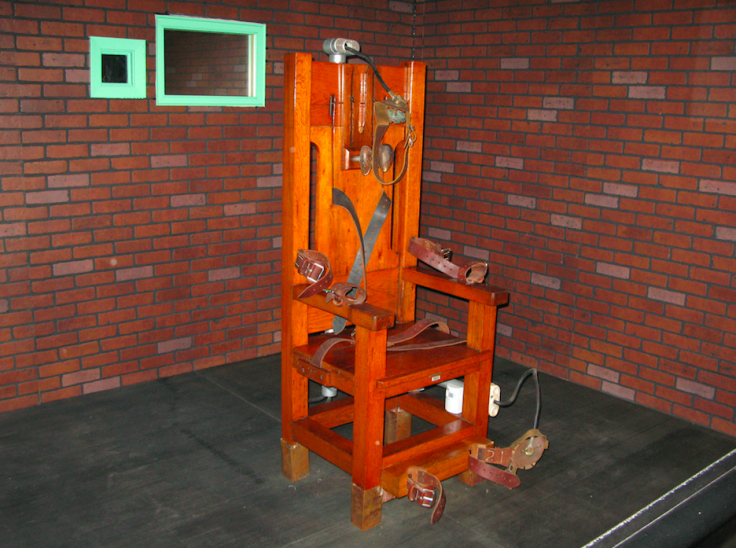Edmund Zagorski's Electric Chair Execution Stayed Until Attorney Given In-Chamber Phone

Death row inmate Edmund Zagorski's electric chair execution scheduled Thursday cannot take place unless prison officials give his attorney access to a phone during the final minutes of his life, a federal judge ruled Monday. U.S. District Judge Aleta Trauger granted a temporary restraining order saying Tennessee must allow Zagorski's lawyer to have "immediate access to a telephone during the time preceding and during the execution."
Neysa Taylor, a representative for the Tennessee Department of Correction, said state officials were reviewing the order to determine what next steps to take. State attorneys had fought against the request for a phone, part of a last-minute challenge Zagorski's attorneys filed Friday.
In the last-minute challenge, Zagorski’s attorney Kelley Henry also argued forcing his client to choose between electrocution and lethal injection was unconstitutional, along with the former method itself. However, Judge Trauger rejected those claims Monday.
Henry had argued it was vital to have access to a phone during the execution so she could alert a judge if something went wrong.
The electric chair has been used only two other times in the last 60 years in Tennessee to put a condemned inmate to death. The first was in 1960 and the other in 2007.
However, the state could appeal Trauger's ruling to the 6th Circuit Court of Appeals. The appeals court can overturn the order, clearing the way for the execution.
Zagorski was convicted in April 1984 of killing two men — John Dale Dotson and Jimmy Porter — in Robertson County. Authorities claimed Zagorski shot them, slit their throats and robbed them after luring them into the woods by promising to sell them a large amount of marijuana.
Earlier this month, Zagorski was one of 33 inmates, who filed a lawsuit, asking for an electric chair execution after claiming the drug cocktail used in lethal injections torture inmates to death.
However, the Tennessee Supreme Court said in its ruling the lawsuit "failed to establish that the current, three-drug lethal injection protocol violates prohibitions against cruel and unusual punishment under the United States Constitution and the Tennessee Constitution."
The 63-year-old's attorney released a statement at the time in response to the Tennessee Supreme Court's decision.
"Faced with the choice of two unconstitutional methods of execution, Mr. Zagorski has indicated that if his execution is to move forward, he believes that the electric chair is the lesser of two evils. 10-18 minutes of drowning, suffocation, and chemical burning is unspeakable. We notified prison officials of his decision within two hours of the Tennessee Supreme Court’s decision," Henry wrote.
On Monday, the 6th U.S. Circuit Court of Appeals also considered Zagorski's claim that his legal counsel at trial was ineffective. A three-judge panel ruled 2-1 against Zagorski.
In August, Tennessee executed its first inmate in nearly a decade and the Supreme Court at the time declined to stay the execution. Tennessee was one of only nine states that allow electrocutions, and just 14 of the 871 inmates executed in the United States since 2000 have been killed in the electric chair, according to the Death Penalty Information Center.
© Copyright IBTimes 2025. All rights reserved.





















